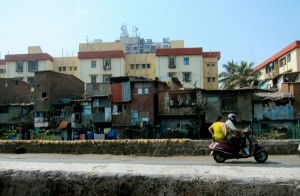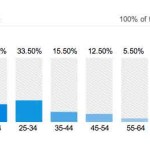The Socio-Economic Rights Institute of South Africa (SERI)
www.seri-sa.org. The Socio-Economic Rights Institute of South Africa (SERI) is a non-profit organisation providing professional and dedicated socio-economic rights assistance to individuals, communities and social movements in South Africa.
SERI conducts applied research, engages with government, advocates for policy and legal reform, facilitates civil society coordination and mobilisation, conducts popular education and training, and litigates in the public interest (the SERI Law Clinic is registered as a public interest law centre).
Our thematic areas are:
- housing and evictions;
- access to basic services; and
- political space.
Housing and Evictions
Of all socio-economic rights, the right of access to adequate housing has been the most developed through Constitutional Court cases, many of which have been actively participated in by SERI’s co-founders. This means that there is a body of work to use as a basis of advocacy and litigation.
However, while jurisprudence has established, for example, that poor people should not be evicted without the government providing adequate alternative accommodation, a number of crucial gaps remain. One of these is that there is insufficient research on the nature and attributes of alternative accommodation required by people under threat of eviction. Another is the need to combat state efforts to exclude classes of people from the provision of alternative accommodation as a means of narrowing the scope of their obligations to provide housing. Yet another is the lack of a co-ordinated civil society sector response to deficiencies in the implementation of housing policies. Agendas remain to be developed, and community-based organisations do not receive the necessary expert assistance from lawyers and policy specialists to properly develop and implement the agendas that they have identified without assistance. Too many community-based organisations (CBOs) lack the resources necessary to resist forced evictions and engage critically with pre-determined upgrading and relocation plans, which are often presented to them as faits-accomplis.
Read more: http://www.seri-sa.org/
Zolani Moya – Minister Sexwale Launches Affordable Housing Scheme
Sabc.co.za. May, 9, 2013
The latest housing project by the department of Human Settlements aims to give low income earners an opportunity to own their houses.
This project targets people earning between R3500 and R15 000 per month for a housing subsidy of up to R87 000 and they can apply for finance for houses up to R300 000.
The first phase of the projects includes 430 units worth nearly R15 million in Port Elizabeth.
Thembinkosi Peter is the first South African to benefit from this housing project, he works for the South African Police force’s support services.
This project has enabled him to buy the two bedroomed house after struggling for years to acquire a bond. Peter lives with his wife and young daughter. “It’s a life changing experience and I am very happy about this thing that government has done, we have been renting, struggling getting places but it’s much better, I am going to have my own house with family”, says an ecstatic Peter.
The project targets people earning between R3500 and R15 000 per month for a housing subsidy of up to R87 000.
The subsidies for the beneficiaries is provided through the Finance Linked Individual Subsidy programme.
Read more: http://www.sabc.co.za/Minister-Sexwale-launches-affordable-housing-scheme
Anywhere But Here: Deserted Banking Empire Turned Skyscraper Slum
messynessychic.com. May, 7, 2013. It was built for stockbrokers and bankers in their thousand dollar suits to make million dollar deals, but for nearly two decades it has held the less impressive title of the world’s tallest squat. Welcome to the Centro Financiero Confinanzas, more commonly known as the Torre David (the Tower of David) in Caracas, Venezuela, an unfinished skyscraper which has now been colonised by an ad hoc community of over 700 families.
Read and see more: http://www.messynessychic.com/banking-empire-turned-skyscraper-slum/
From The Web – Transparency International
![]() One global movement sharing one vision: a world in which government, business, civil society and the daily lives of people are free of corruption.
One global movement sharing one vision: a world in which government, business, civil society and the daily lives of people are free of corruption.
In 1993, a few individuals decided to take a stance against corruption and created Transparency International. Now present in more than 100 countries, the movement works relentlessly to stir the world’s collective conscience and bring about change. Much remains to be done to stop corruption, but much has also been achieved, including:
– the creation of international anti-corruption conventions
– the prosecution of corrupt leaders and seizures of their illicitly gained riches
– national elections won and lost on tackling corruption
– companies held accountable for their behaviour both at home and abroad.
GLOBAL REACH, LOCAL KNOWLEDGE
Through more than 100 national chapters worldwide and an international secretariat in Berlin, we work with partners in government, business and civil society to put effective measures in place to tackle corruption.
INDEPENDENT AND ACCOUNTABLE
We are politically non-partisan and place great importance on our independence. We alone determine our programmes and activities – no donor has any input into Transparency International’s policies. Our sources of funding are made transparent as is our spending.
Read more: http://www.transparency.org/
Swaminathan S. Anklesaria Aiyar – The World Needs More Slums
nextcity.org – May, 7, 2013 – In a guest blog post, Indian journalist Swaminathan S. Anklesaria Aiyar argues that, contrary to their reputation for squalor and crime, slums provide a critical low-cost way for the rural poor to access a better life in cities.
What constitutes the perfect city? It’s easy to make a list of utopian must-haves: Electricity and water round the clock; unpolluted air; plentiful road space for cars, bicycles and pedestrians; good educational and health facilities; lots of parks and museums. Those with an institutional mindset will argue for elected mayors with strong tax and administrative powers, giving them independence from callous state capitals.
No matter how desirable, such utopian longings fail to place cities in the context of a poor, rural society. Cities must not be elite islands in a rural sea of despond[dency]. They must provide income and social ladders for the poor and unskilled to climb up. Cities must be havens of opportunity for those without opportunity in rural and tribal settings.
This has an implication that will make many blanch — we must have more slums. These are the entry points of the poor into urban havens of opportunity. When urban land costs crores (millions) per plot, the poor can’t dream of buying land. Cities lack the funds for even basic facilities, let alone massive public housing. So rural migrants encroach on public land, creating shanty towns. These slums are eyesores — just looking at them makes urban folk shudder. Yet this should drive home to the elite how truly wretched rural India must be if poor people see more hope in filthy urban shanties than in the countryside.
Read more: http://nextcity.org/informalcity/entry/we-need-more-slums
Lévi-Strauss – A Propos Tristes Tropiques
P.S. This is intended for non-profit commentary and educational purposes. No copyright infringement intended. Copyright Disclaimer Under Section 107 of the Copyright Act 1976, allowance is made for “fair use” for purposes such as criticism, comment, news reporting, teaching, scholarship, and research. Fair use is a use permitted by copyright statute that might otherwise be infringing. Non-profit, educational or personal use tips the balance in favor of fair use.





